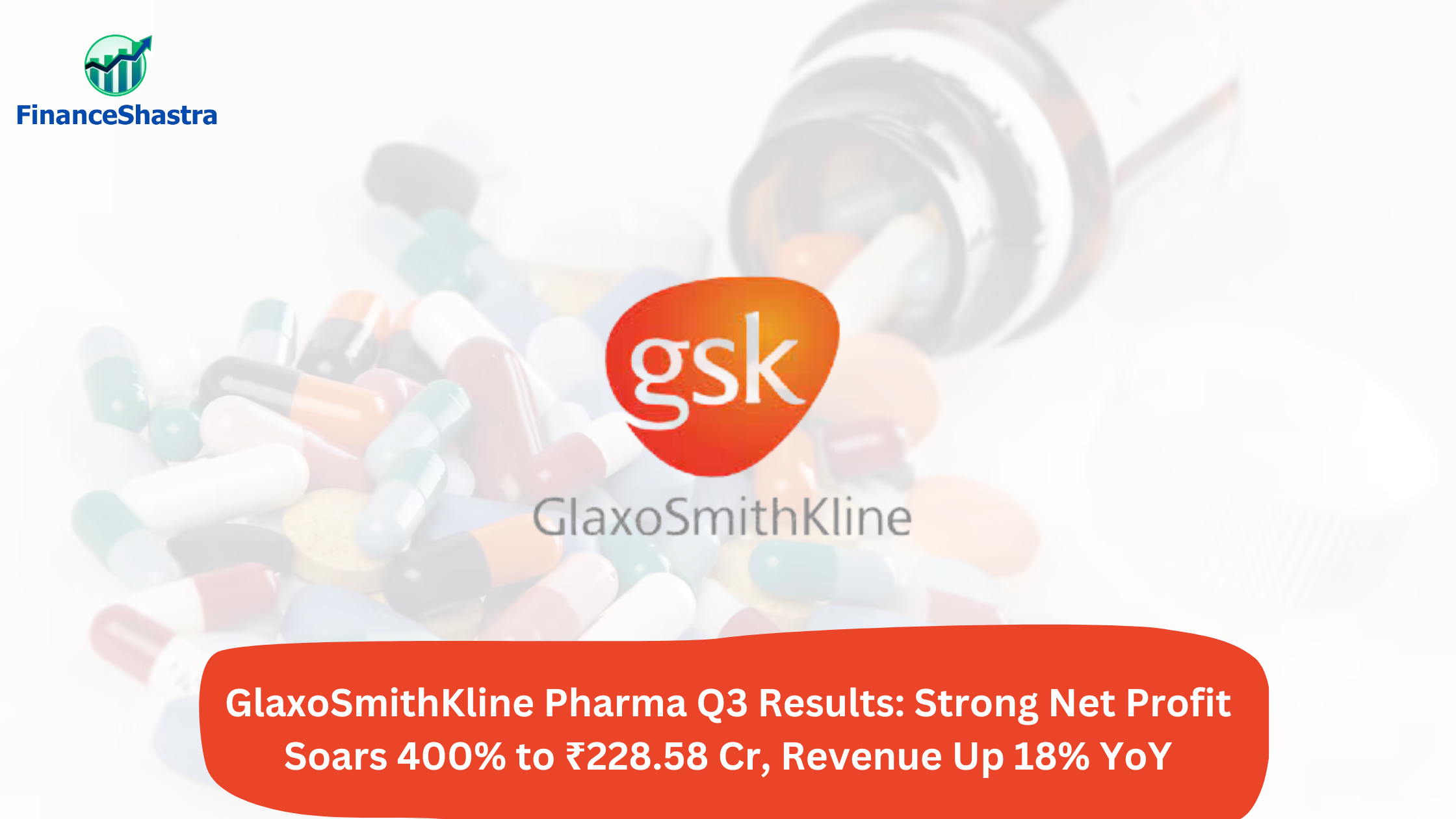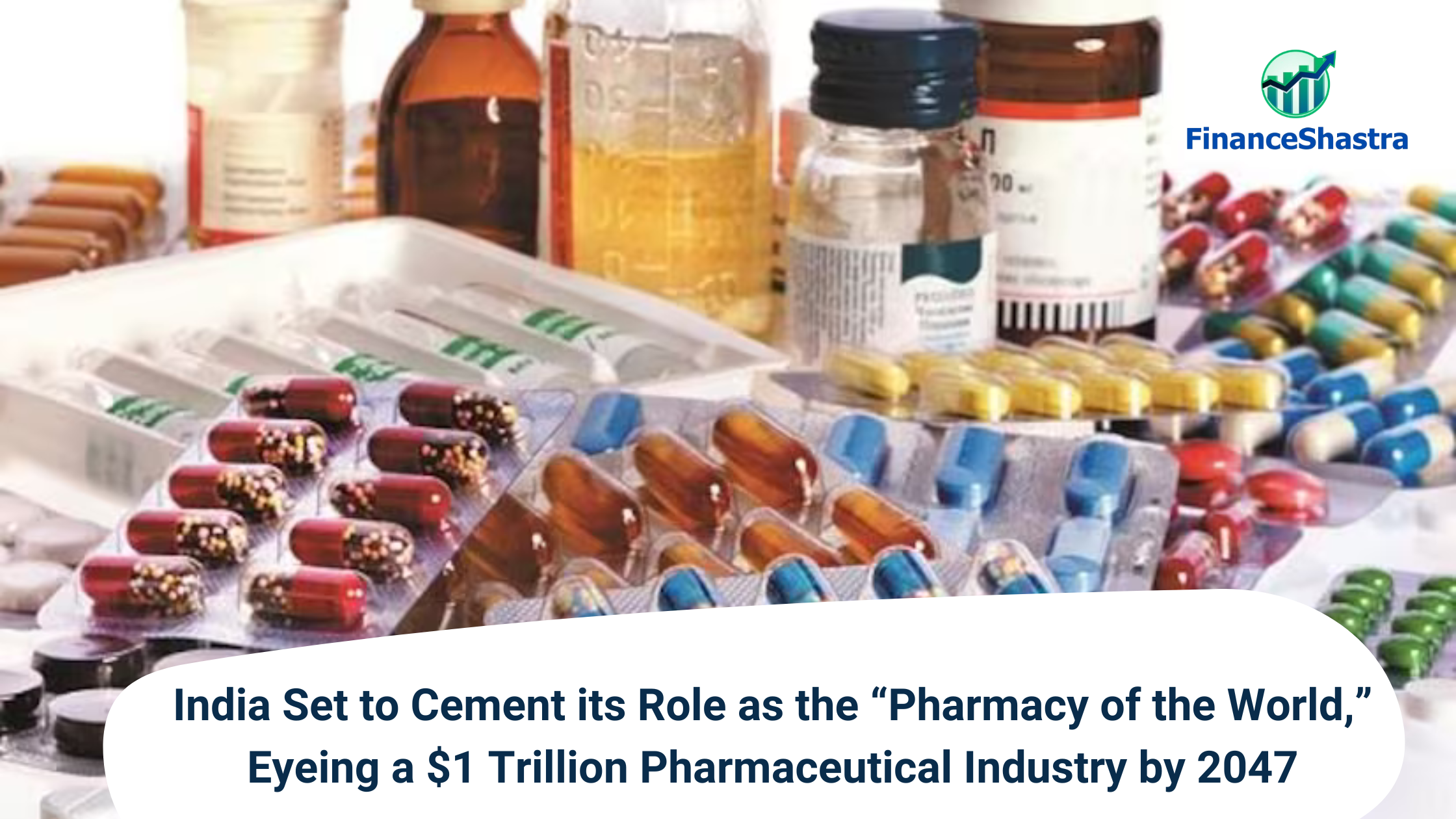GlaxoSmithKline Pharma Q3 Results: Strong Net Profit Soars 400% to ₹228.58 Cr, Revenue Up 18% YoY
Business and Industry Overview:
GlaxoSmithKline Pharmaceuticals Limited (GSK Pharmaceuticals) is a leading research-based pharmaceutical and healthcare company in India, functioning as a subsidiary of the global entity GSK plc. Founded on November 13, 1924, originally as H.J. Foster & Co. Limited, the company has transformed over the decades into a significant player in India’s pharmaceutical sector. GSK is recognized as one of the top 10 drug manufacturers worldwide. In India, GSK’s operations include General Medicines, Pediatric Vaccines, and Adult Vaccines. The company’s Respiratory portfolio features products like Nucala and Trelegy, while its Adult Immunization category includes the Shingrix Herpes Zoster Vaccine. GSK is also implementing an omnichannel strategy to enhance its reach and service coverage. As of 2024, GSK’s net asset value was approximately 128 million Indian rupees. The company’s future performance may fluctuate due to various factors, including changes in industry trends, market conditions, government regulations, and other unforeseen circumstances.
India is the largest global supplier of generic drugs and is well-known for its affordable vaccines and generic medications. The Indian pharmaceutical industry is currently ranked third in the world in terms of pharmaceutical production by volume. Over the past nine years, this sector has flourished, with a compound annual growth rate (CAGR) of 9.43%. Key segments within the Indian pharmaceutical industry include generic drugs, over-the-counter medications, bulk drugs, vaccines, contract research and manufacturing, biosimilars, and biologics. India has the highest number of pharmaceutical manufacturing facilities that comply with the standards set by the U.S. Food and Drug Administration (USFDA). The country is home to numerous producers, which account for approximately 8% of the global active pharmaceutical ingredient (API) market. GSK is the leading player in this market, boasting a market share of 33%.
Latest Stock News:
GlaxoSmithKline (GSK) Pharmaceuticals announced an impressive 402% year-on-year (YoY) increase in consolidated net profit for the December quarter (Q3 FY25), reaching ₹228.58 crore, up from ₹45.49 crore in the same period last year. On February 14, GSK Pharmaceuticals reported an 18% revenue increase to ₹946 crore for the quarter ending December 31, 2024, along with a profit after tax of ₹229 crore.
During this quarter, the company’s revenue from operations rose to ₹946.36 crore, reflecting a 17.5% YoY increase from ₹804.98 crore in Q3 FY24.
However, compared to the previous quarter, the company experienced a decline: net profit fell by 8.08%, and revenue decreased by 5.4%, down from ₹248.68 crore and ₹1,000.05 crore reported in Q2 FY25, respectively.
Segmental information:
Pharmaceuticals: GSK Pharmaceuticals offers a diverse range of prescription medicines across various therapeutic areas, including anti-infectives, dermatology, gynecology, diabetes, oncology, cardiovascular diseases, and respiratory ailments.
Key Products: The company’s portfolio features leading brands such as Augmentin, a widely used antibiotic, and respiratory therapies like Nucala and Trelegy. These products have significantly contributed to the company’s growth, with Augmentin maintaining its position as the No.1 brand in the Indian pharmaceutical market.
Pediatric Vaccines: GSK Pharmaceuticals provides vaccines aimed at preventing diseases such as hepatitis A and B, influenza, chickenpox, diphtheria, pertussis, tetanus, rotavirus, and cervical cancer. The pediatric vaccine portfolio has demonstrated double-digit growth, maintaining market leadership in the private sector.
Adult Vaccines: The company is advancing adult immunization in India, notably with Shingrix, a vaccine for shingles. Innovative marketing strategies, including awareness campaigns featuring prominent figures, have bolstered the uptake of adult vaccines.
Subsidiary Information:
ViiV Healthcare: Specializing in HIV treatment and prevention, ViiV Healthcare is a joint venture where GSK plc holds a majority stake of 76.5%, while Pfizer and Shionogi own 13.5% and 10%, respectively. This collaboration focuses on delivering advanced HIV therapies worldwide.
Stiefel Laboratories: Acquired by GSK in 2009, Stiefel Laboratories specializes in dermatology products, thereby enhancing GSK’s portfolio in skin-related treatments.
Reliant Pharmaceuticals: Purchased by GSK in 2007, Reliant Pharmaceuticals contributed a range of cardiovascular products, including Lovaza, an omega-3-acid ethyl ester, to GSK’s portfolio.
Haleon: In July 2022, GSK plc demerged its consumer healthcare business to form Haleon, which focuses on over-the-counter products and wellness. This strategic move allowed GSK to concentrate more on its biopharmaceutical segments.
Q3 Highlights:
- GSK Pharmaceuticals reported a 402% YoY increase in net profit for Q3 FY25, totaling ₹228.58 crore (up from ₹45.49 crore last year).
- Revenue for the December 2024 quarter rose 18% to ₹946 crore. Revenue from operations increased by 17.5% YoY to ₹946.36 crore, compared to ₹804.98 crore in Q3 FY24.
- Compared to Q2 FY25, net profit fell by 8.08% and revenue decreased by 5.4% (down from ₹248.68 crore and ₹1,000.05 crore, respectively).
Financial Summary:
| Amount in ₹ Cr | Q3 FY24 | Q3 FY25 | FY23 | FY24 |
| Revenue | 805.00 | 949.00 | 3,252 | 3,454 |
| Expenses | 587 | 658 | 2,447 | 2,545 |
| EBITDA | 218 | 292 | 804.00 | 909.00 |
| OPM | 27% | 31% | 25% | 26% |
| Other Income | -135 | 35 | 103 | -21 |
| Net Profit | 46.00 | 230.00 | 611 | 590 |
| NPM | 5.71 | 24.24 | 18.79 | 17.08 |
| EPS | 2.7 | 13.57 | 36.05 | 34.83 |


